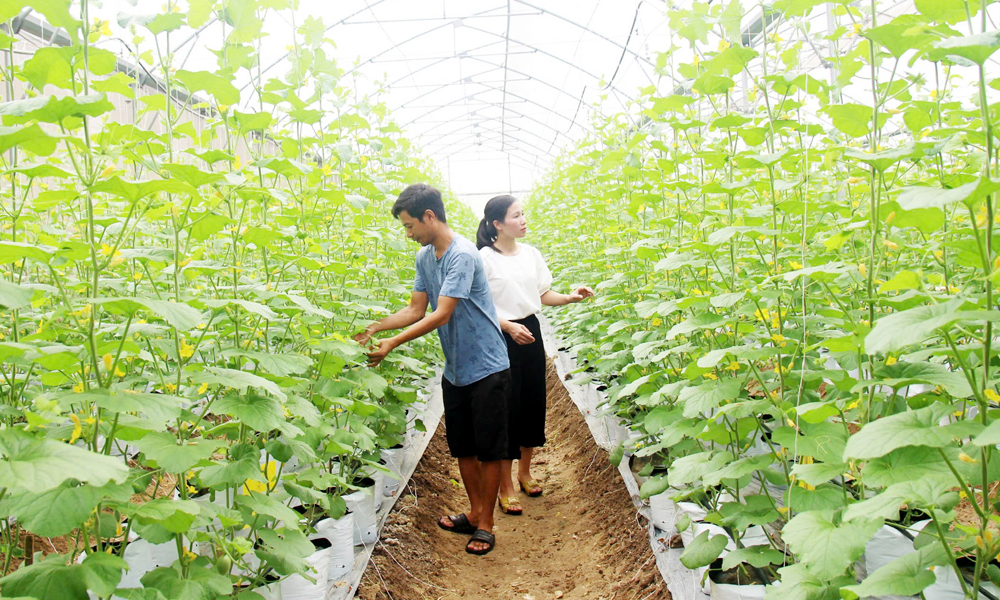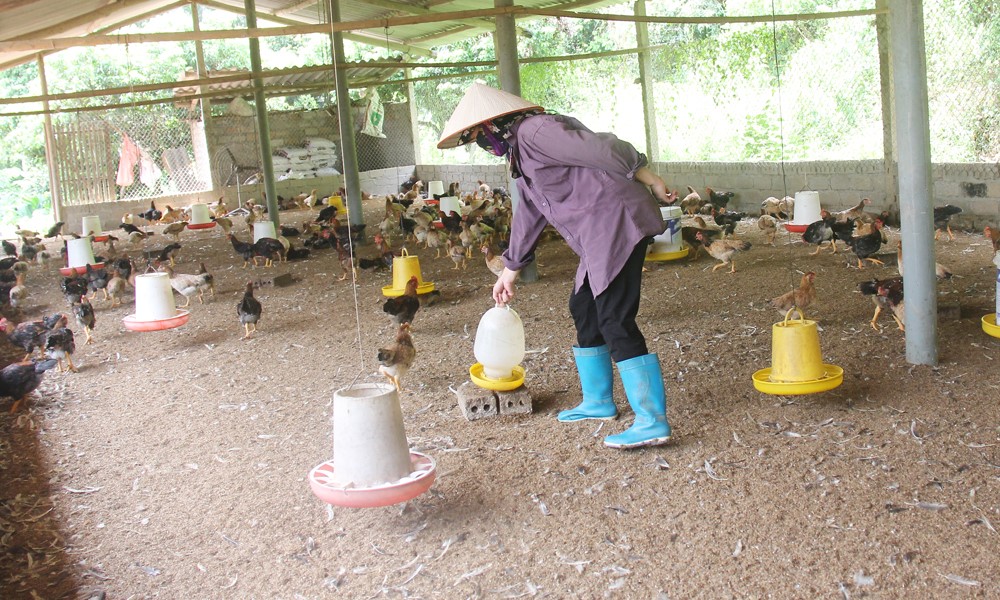Vietnam, China discuss ways to promote agricultural product trading
According to Vietnamese Deputy Minister of Agriculture and Rural Development Tran Thanh Nam, since the beginning of this year, China has changed some regulations in goods imports such as traceability of products and food safety.
 |
|
At the working session. |
The MARD has actively worked with Chinese ministries, departments and customs to update information on regulations in agro-forestry-fishery imports, Nam said.
As businesses of both countries have great demand for import and export of agricultural products, the ministry and the Chinese side will co-organise a workshop to exchange information on food safety, animal and plant quarantine, and regulations on management and control of agro-forestry-fishery imports and exports in Ho Chi Minh City on June 20.
Nam revealed that more than 300 businesses have registered to participate in the event which is expected to help enterprises change their mindset in production to create high-quality and competitive products.
Long Yushan from the Nanning Customs Bureau under the General Administration of Customs of China said, at the upcoming workshop, Chinese relevant agencies will provide information on regulations on animal and plant management and quarantine, especially for dairy, aquatic products and fruits.
She hoped the two sides will help local businesses to access the Chinese market and understand its requirements to sustainably promote bilateral trade.
In 2018, Vietnam exported 8.6 billion USD worth of agro-forestry-fishery products to China. Three groups of goods - fruits and vegetables, rubber, wood and wooden products – saw their export turnovers surpassing the 1 billion USD benchmark.
The Southeast Asian country spent 2.47 billion USD importing farm produce from China last year.
By the end of April 2019, Vietnam earned 2.64 billion USD from exporting agro-forestry-fishery products to China, a year-on-year decline of 8.3 percent.
At present, nine fresh fruits from Vietnam are shipped through official channels to China, namely dragon fruit, watermelon, lychee, longan, banana, mango, jackfruit, rambutan, and mangosteen.
On April 26, 2019, the two countries signed a protocol on opening the market for mangosteen and another on exporting Vietnamese dairy products to China.
The MARD is proposing China open the market for other Vietnamese fruits such as durian, passion fruit, avocado, grapefruit, coconut, custard apple, and rose apple.
China has announced the exemption of tariffs for 33 aquatic products under the ASEAN-China Free Trade Agreement, including lobster, tiger shrimp, marine shrimp, frozen pangasius, basa fish, and ocean tuna.
Currently, 701 Vietnamese aquatic firms are allowed to export products to China.
Source: VNA
 Bắc giang
Bắc giang
















Reader's comments (0)